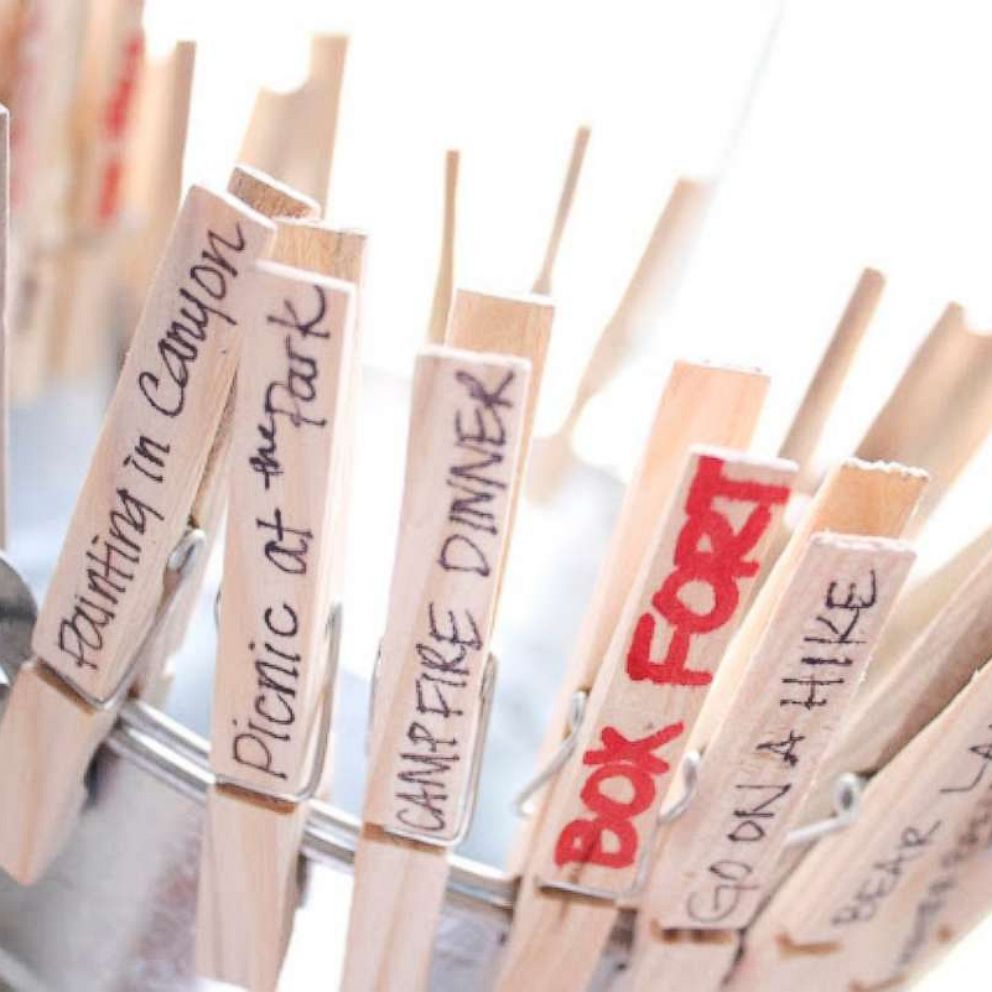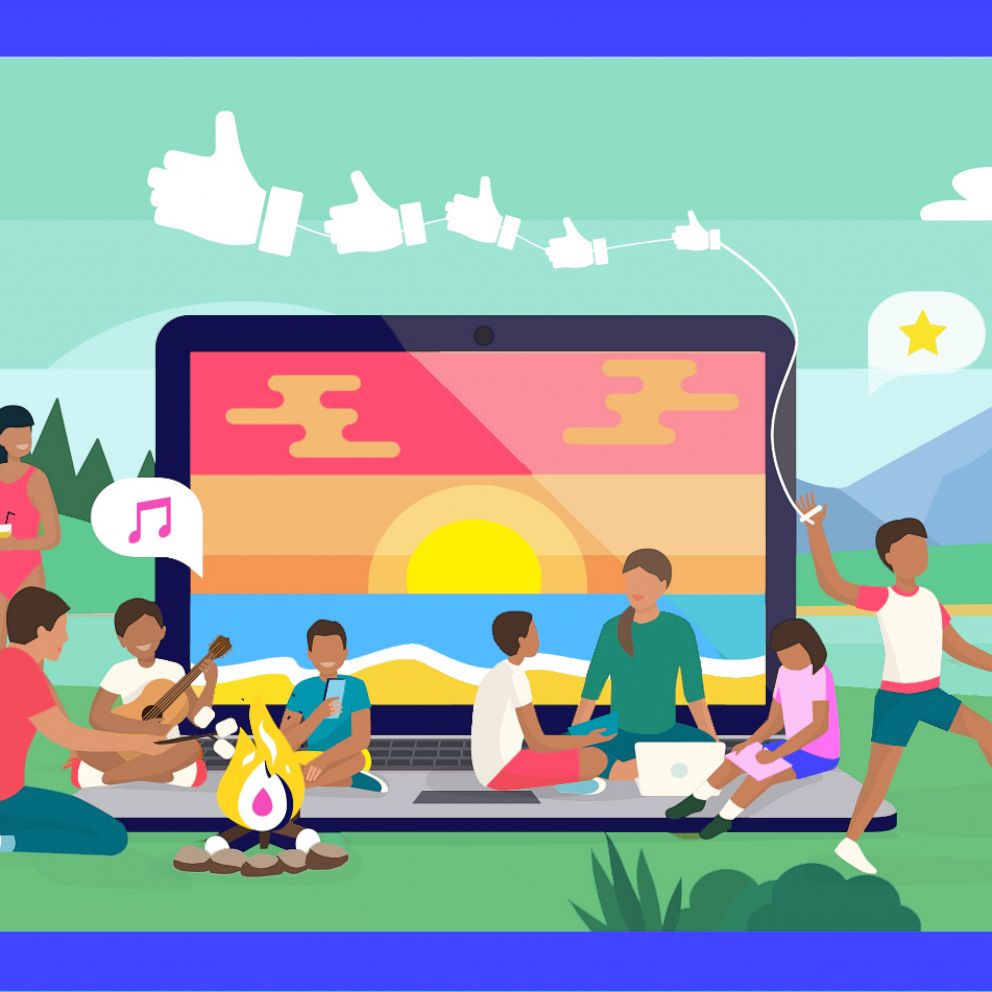22 online camps approved by Common Sense Media
Many of the options are free of charge.
This story originally ran on the Common Sense Media website. It has been reprinted here with permission.
Summer 2020 won't be the idyllic canoeing-on-the-lake camp you might have envisioned for your kid. But online summer camps for kids at home aren't necessarily a sad stand-in for the "real" thing. In fact, your kid could have a pretty great summer doing many of the same things they'd do at traditional camp, like making new friends, learning cool things, and improving academic skills (not to mention staying out of your hair).
In some ways, online programs may even have a bit of an edge over an in-person camp. With go-at-your-own-pace lessons, one-on-one meetings with counselors, and experienced instructors, kids get to take advantage of learning opportunities they wouldn't have otherwise. And most -- but not all -- virtual camps are less expensive than the traditional kind. With many of the listings below, you can mix and match activities to tailor the experience to your kids' interests. Each works a bit differently, so review the "How it works" section for details. And check back frequently for updates to this story as the summer progresses.
Where to look
If you're casting a wide net, start your search with the camp directories below. You'll find tons of online classes for a variety of ages and prices (including free). Other great places to look include your local YMCA, JCC, or parks and recreation department.
ActivityHero. Serving as a clearinghouse for in-person activities as well as online classes and camps, this site lists a wide range of things to do for all ages, interests, and budgets. You'll find both single-day sessions and more in-depth "camp-like" experiences.
American Camp Association. A usual go-to site for families researching in-person summer camps, the ACA now offers a directory of virtual camps for all ages and topics. You can search and sort by cost, activity, and other filters to find the best fit for your kid.
Outschool. This site offers hundreds of online classes in just about every subject -- from mindfulness to Minecraft -- for kids age 3 to 18. There are both live, interactive classes, as well as "flexible schedule" options where kids can go at their own pace. Classes also vary in their start date and meeting frequency. (Note: Common Sense Media has a business relationship with an investor in Outschool.)
For kids who love learning
Brain Chase. Starts at $99, extra for electives; age 7–14. Kids work on math, reading, and typing all while competing in a real-life treasure hunt for the chance to win $1,000 in gold. Brain Chase starts in June and runs for six weeks. How it works: Self-directed activities and videos released on a weekly schedule.
Camp Edmo. Starts at $150 per session (supplies cost extra); age 4–13. An engaging mix of learning projects, indoor games, and screen-time breaks makes Camp Edmo a fun option for families looking for more structure in their kids' online camps. Each week of programming focuses on a different topic, ranging from music to climate change, depending on kids' ages. How it works: Two and a half hours of live instruction, interaction, and specialized activities via video chat from Monday to Friday. Morning and afternoon sessions are available.
Camp Kinda. Free; age 5–14. Camp Kinda offers themed activities like "Histories Mysteries," for kids to complete at their own pace. Each week until Sept. 1, kids get a new week's worth of online, offline, and even outdoor activities designed to take about three to four hours per day. How it works: Self-directed activities on a flexible schedule, with new daily activities released every week.
Camp Wonderopolis. Free; age 7 and up. Sponsored by the National Center for Families Learning (NCFL), this online camp lets kids explore topics such as weather, food, and technology. Each topic includes lessons, outdoor activities, videos, and additional reading suggestions for all ages. How it works: Self-directed activities on a flexible schedule.
Varsity Tutors. Free; age 5 and up. Kids can join a weeklong session based on their grade level for a variety of original, educational subjects like basic engineering using household items, mastering strategy games, and drawing anime. How it works: One hour of live instructions via video chat from Monday to Friday, with some self-directed work time.
Wide Open School. Free; all ages. Created and curated by Common Sense, this site makes distance learning easier and more accessible for families and educators. Kids from preschool to high school can browse through engaging videos, lessons, and activities by topic or subject -- all created by top-quality providers including PBS, GoNoodle, and Khan Academy. How it works: Self-directed activities on a flexible schedule; parents can use the "virtual summer camp" schedule, create their own, or let older kids explore themselves.
Id Tech Camp. Starts at $399; age 7 and up. Id Tech Camp offers weeklong, instructor-led camps on a variety of tech topics including coding, game design, engineering, and advanced programming languages. How it works: Two hours of live instruction via video chat from Monday to Friday, plus approximately two hours of individual work.
K12 Destinations Career Academy. Free; age 13 and up. High schoolers can get course credit with these free summer school classes and coding bootcamps. Teens can also explore careers by taking informational courses. Teachers are available to help during traditional school hours. How it works: Students have one month to complete school classes on their own time (approximately two hours per day); coding bootcamps have 60 to 90 minutes of live instruction via video chat in the morning and afternoon.
Kids 4 Coding. Starts at $99 per class; age 7–16. Aspiring app developers and game designers can choose from several weeklong courses to sharpen their coding skills. The small classes are taught by trained teachers and university-level computer science students. How it works: One to two hours of live instruction via video chat from Monday to Friday, plus additional self-directed time to complete projects.
Tech Revolution - Virtual Tech Camps. Starts at $299 per class; age 7–14. Kids can learn a variety of programming languages, as well as video and music production, all taught by trained instructors. Small-group classes work together on activities and projects, with plenty of breaks built in. How it works: Three hours of live instruction, interaction, and specialized activities via video chat from Monday to Friday.
For kids who love creating and making
DIY. Free trial followed by monthly or yearly subscription; age 7 and up. This site offers online courses in areas such as drawing, photography, animation, inventing, and science, plus more than 1,000 additional activities (many of which can be completed offline). How it works: Self-directed projects on a flexible schedule.
The Lion King Experience: At Home. Free; age 8–15. Originally designed for classrooms and adapted for home use, this immersive theater program teaches kids performance art through The Lion King. Each lesson plan (there are 11 for kids, 18 for teens) contains videos, journal prompts, performances, and more. How it works: Self-directed activities broken into 45-minute lesson plans on a flexible schedule.
Make: Online. Free, but materials cost extra; age 12 and up. The folks behind the maker movement offer instructions and advice on projects using primarily household materials, like a banana piano or a leaf blower hoverboard. How it works: Self-directed project ideas on a flexible schedule, with a regular newsletter offering new virtual events and activities.Play-Well Teknologies. Starts at $36 per class, but Legos cost extra; age 5–12. Young Lego fans can take part in a weeklong class that combines creativity with STEM concepts. Kids can share their creations with fellow builders and trained Play-Well instructors who guide them through lessons. No instruction manual or specific pieces required. How it works: 45 minutes of live instruction via Zoom from Monday to Friday.
Start with a Book. Free; age 6 and up. In addition to a summer science camp, this site offers a long list of themes, such as Art, Night Sky, and Weather Report, for kids to explore. For each theme, you get book suggestions (for all reading levels), discussion guides, hands-on activities, and related sites and apps. (You'll need to check the books out of the library or buy them.)How it works: Self-directed activities on a flexible schedule.
For kids with special needs and situations
American Diabetes Association Imagine Camp. Free; age 6 and up. For summer 2020, the ADA is offering Imagine Camp, an at-home version of its traditional camp for kids with type I diabetes. Imagine Camp focuses on community-building instead of outdoor activities, with online adaptations of campfires, games, and singalongs. How it works: Two hours per week of guided discussions with counselors and health experts via video chat, plus additional virtual activities and videos.
Camp Kesem at Home. Free; age 6 and up.Camp Kesem provides free summer camps to kids whose parents have cancer, allowing them to build relationships with other kids going through the same thing. This summer's programs are all virtual. Apply through your local Camp Kesem chapter, which you can find on the website. How it works: Live and recorded videos twice a week, along with offline activities and social media interaction with other campers and counselors.
The Help Group's Kids Like Me. Starts at $90; age 6 and up. Although usually based in southern California, these camps for kids with autism, ADHD, and other learning and attention issues have shifted online. Kids can choose from three sessions: STEM, learning and improving social skills, and a traditional-style camp with activities from sports to music and drama. All camps are led by trained professionals and experienced counselors. How it works: Two hours of live instruction in the morning and two hours in the afternoon via Zoom; the STEM class is Monday to Friday, but the other camps have both half-day and three-days-a-week options.
Frannie Ucciferri, associate managing editor, contributed to this story.






